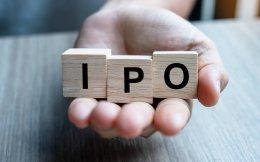Standard Chartered Private Equity (SCPE), the PE arm of the Asia focused bank, tested the domestic waters way back in 2002, when the investing community considered India as one of those faraway lands. Since then, SCPE, which invests out of the balance sheet of the bank, has pumped in $425 million across 10 companies in India. “We are not prolific investors but we are now averaging $50-75 million across each deal,” says SCPE managing director Nainesh Jaisingh. And, that means SCPE, which does 3-4 deals annually, now competes with every major private equity player in the country. It also tied up with Singapore state investor Temasek Holdings to launch Merlion India Fund, which has invested in ABG Shipyard Ltd, Sutherland Global Services and Punj Lloyd Ltd.
In an interview with VCCircle, Jaisingh says, the India consumption story will continue to drive SCPE’s investment strategy as people’s aspirations do not change with capital markets. Excerpts:-
Q. How does SCPE differentiate itself in a crowded private equity market in India?
We invest in companies that are looking to transform themselves. We help them evolve from a single geography or a single product and help them get to the next league. We usually stay invested for 3-5 years, the time it takes to achieve these strategic changes. Core proposition drives our thinking and not market behaviour. We look at how a company can grow its fundamental business, earning power and prospects over, say, three years. If those things happen, the stock prices will take care of themselves. In case of listed companies, we also become buyers when the markets sell off. We help portfolio companies in the areas of corporate finance, M&A strategy and access to emerging markets.
In the case of listed companies, we also become buyers when the markets sell off. We have made some exits in 2007 and we took out almost $300 million in capital gains from India. In 2008-09, when the markets hit the bottom, we bought back some of these stocks.
Our returns have been well in excess of 2x the money that we invested on the realized part and we have still some to go. (Though Merlion has made part exits in companies like ABG Shipyard, Punj Lloyd etc., it still holds a substantial stake in them).
Q. What is your investment approach given the market conditions?
We have been pretty much steady in our approach. We have three themes running in our strategy – skills export, domestic consumption and infrastructure. Given the global order, we may need to reconsider the first one depending on where the markets are.
The domestic consumption story is still the strongest. The guy on the street wants to buy a car, a house, foreign holiday and so on. The implication of this consumption is huge – from media to food & beverages to financial services.
I would be careful on infrastructure. While there is a lot of euphoria and a promise to spend by the government, let us not forget that the fiscal deficit is around 7% of GDP.
In the last two years, India’s vulnerability has been badly exposed. For India to look like a bad place, all it takes is FII outflows and high oil prices.
In 2004-07, when the times were good, we did not fix anything like changing the nature of inflows into real FDI. Most of the money is still FII while private equity inflows come with a 5-year horizon. Compare this to China which attracts FDI with a 20-year horizon.
Q. Do you see the IPO market making a comeback?
In IPO and PE deals, volatility keeps people away. When valuations are down, the promoter says, ‘no, thank you’; when they are up, it is the PE’s turn to say, ‘no, thank you.’
IPO markets are very much a function of stability. While markets have gone up 50%, IPOs have not happened. And, I expect markets to remain volatile for a while.
Q. Do you see secondaries (an investor buying another investors stake in a company) as an interesting opportunity right now?
They could be. We have seen some deals where existing investors have been sitting for a long time (their exit horizons have come and gone) while the company may not be ready for an IPO yet. Some houses may look at exit opportunities.
Q. Do you see the emergence of a more mature private equity market in India?
I expect a serious rationalization of the private equity business in India. PE players will now have to show to their investors and sponsors why it’s not another opportunistic play on market movement. The segregation of this species will become clearer.
Q. Are your portfolio companies eyeing M&A opportunities?
Most of them are. We helped Punj Lloyd acquire a company in Singapore, which made the firm truly a multinational. Endurance, an auto component manufacturer, made two overseas acquisitions in 2006 and 2007. One of the acquird companies, which had Fiat as its main clients, has a new customer in Chrysler after former acquired the latter.
Early last year, SCPE led a $140-million investment in travel outsourcing firm InterGlobe Technology Quotient with DBS and Credit Suisse. InterGlobe, promoted by the owners of IndiGo airlines, has acquired WorldSpan which opens up the South Asian market for the company. So value has to be created through corporate action or a strategic move towards new clients and markets.
Q. Will SCPE look at buyouts and control in transactions now?
We have them in south-east Asia where the culture of control in transactions is very well understood. Here, there are cultural issues in selling control. Besides, it is a growth market. But, it may happen in cases where companies are looking at restructuring, hiving off non-core assets or have been badly hit by the market conditions in the last couple of years.







